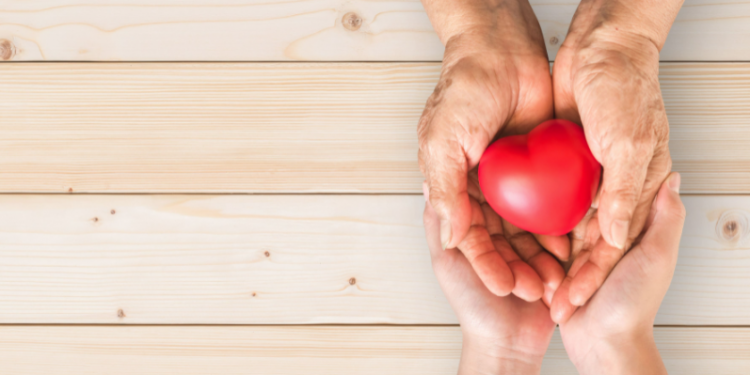by Kristin Steadman
“There are only four kinds of people in the world: those who have been caregivers, those who are currently caregivers, those who will be caregivers, and those who will need caregivers.” Rosalynn Carter, 2012
This quote is, for better or for worse, incredibly accurate. Oftentimes, a caregiver doesn’t even self-identify as a caregiver — they feel as if they are just doing what you do for people you love. A wife caring for her husband with Alzheimer’s, a mother caring for her son with special needs, or an adult child caring for one or both parents with failing health issues are roles that people step into out of love and compassion, but it does come at a price for the caregiver, and often the care recipient.
When a caregiver doesn’t take the time for self-care, the result is compassion fatigue and burnout. Perhaps for some people on the outside, that just sounds like fluffy language, but the fallout of compassion fatigue and burnout is real. Caregivers are more likely to suffer from depression, isolation, anxiety, migraines, cardiovascular issues, obesity, and other mental and physical illnesses. Self-care for caregivers is not a luxury, but a necessity. When a caregiver isn’t taking time for self-care, the the care recipient feels the effects of the stress the caregiver is under.
I understand full well the necessity of self-care and, unfortunately, I also understand full well the implications of not making it a priority. My husband and I have two children, and our son has a rare neuro-genetic disability, called SYT1 mutation, also called SYT1 associated neurodevelopmental disorder or Baker-Gordon Syndrome. He is 100% dependent on us or every single thing, and he will be for the rest of his life – he is also the sweetest, happiest kid. We are never fully “off the clock,” even when he is at school with trained special education staff and nurses, we are always on-call, and are always at the ready to drop what we are doing to deal with his medical needs.
Additionally, we are constantly trying to balance his needs that are literally life and death, with those of our daughter. She is bright, very active in soccer, school, and church, and will soon be headed to college, so we want to soak in every moment we can with her and as a family. My husband and I both work in caregiving professions, so we are busy like most families, but the challenge of taking time to take care of our relationship as well as ourselves often feels impossible.
I have fallen victim to the mentality that I don’t have time to take care of myself, or maybe tomorrow I can eat healthier, sleep better, and exercise, but tomorrow turns into next week, which becomes next month and then before you know a year or two or five have gone by. As the time is just ticking by, my anxiety, depression, and own physical health continue to slide into a dark place. By the time I realize how far down this deep hole I’m in, I’m discouraged to figure out how to get myself out of that dark space. Mitigating something before it even happens, as opposed to playing catch up years later, is so much easier.
Self-care looks differently for everyone, and often people have several things they enjoy doing for self-care. At times, the best I can do for self-care that day is spend a few minutes outside, alone, to take some deep breaths. Other days, I go to the gym or for a walk, get myself coffee from my favorite coffee shop, or spend time with my family. Of course, we have the very rare occasions when my husband and I get away for a weekend and not have to worry about anyone’s medical needs (but our phones are always on waiting for the call).
The ideas for self-care are endless, but here are a few suggestions broken into categories:
- Time in nature – walk, run, fish, hike, swim, kayak, or garden
- Literature – read, journal, listen to a podcast
- Arts and crafts – paint, take a pottery class, color, or work on photography
- Other ideas – take a drive with your favorite music, spend time with other children and/or your spouse, cook your favorite meal, exercise, do a deep cleaning (this can be quite therapeutic), enjoy the sunshine, make a snow man, or take an uninterrupted nap
Self-care needs to be a daily habit, and people will be more successful when it’s on their calendars. The care time doesn’t have to be perfect or an entire day (although that is nice), just small consistent pieces each day. Perhaps the best analogy is the flight attendant telling passengers that, in the event of an emergency, to put on their own oxygen mask first, and then help to put on the oxygen mask of someone traveling with them who may need more assistance.
If you do not take care of yourself first, you will not be able to care for others effectively.











